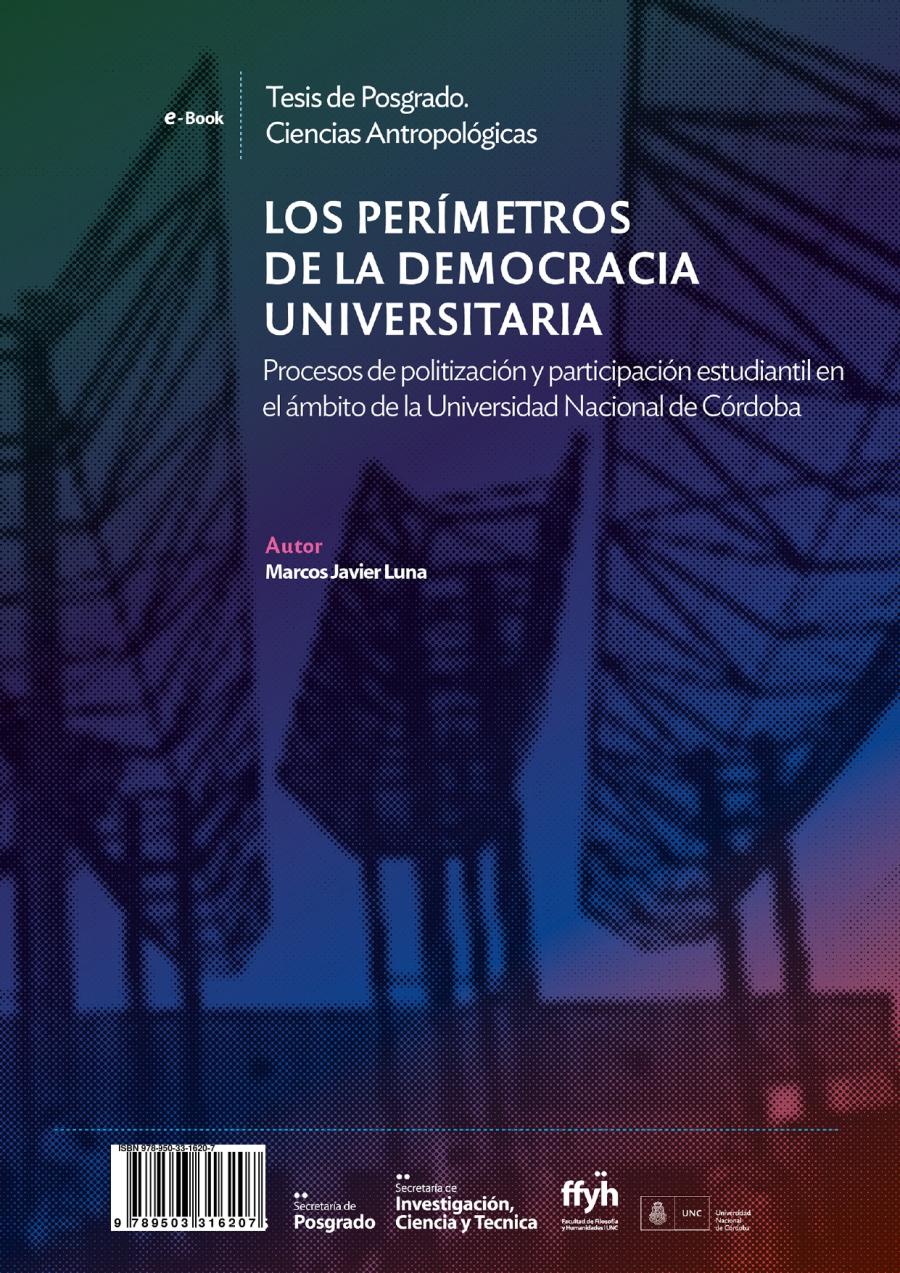The Perimeters of University Democracy. Processes of Politicization and Student Participation at the National University of Córdoba
Keywords:
student political participation, National University of Córdoba, university politics, student cloister, university co-government, national universitiesSynopsis
Student political participation in the university setting has historically been a topic of debate—academic, but also social—which has revolved around its dynamics, its repertoires, and its legitimate and illegitimate forms. This thesis aims to contribute to these discussions by exploring the functioning of politics at the National University of Córdoba from the perspective of students who, in different circumstances, became involved in institutional decision-making processes. Based on ethnographic work carried out between 2012 and 2016, this research addresses the question of the relationship between students and politics, while exploring the functioning of co-government, the form of democracy characteristic of national public universities in Argentina.
Reading the ethnographic material in light of a series of studies in anthropology and political socio-history allowed us to argue that university politics operates under a constitutive ambiguity—or a policy of exclusion—a characteristic it shares with Western democratic systems. A policy that involves the production of active citizens, but at the same time conditioned to participate only at certain times and through certain pre-established forms.
Student participation develops within and amid this ambiguity, which in the university setting manifests itself through the simultaneous operation of two conflicting principles: on the one hand, the principle of co-government, achieved by the reformist movement in 1918 as a tool for the democratization of the university, which has since constituted both a condition of possibility and an impetus for student participation in university governance.
On the other hand, there is a principle associated with the existence of an asymmetrical structure in terms of conditions for political participation, manifested in unequal student representation within co-government. By analyzing the expressions of this duality of principles through processes of conflict, co-government is shown to be the result of the dynamic and constant social production of its forms, rules, and boundaries.

Downloads
Published
Categories
License

This work is licensed under a Creative Commons Attribution-NonCommercial-ShareAlike 4.0 International License.


